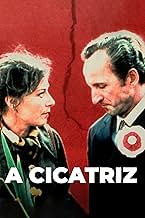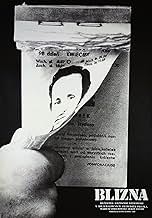Füge eine Handlung in deiner Sprache hinzuWhen a political decision is made as to the location of a new large chemical factory, Stefan Bednarz is put in charge of it. This honest communist party man has to confront the local communi... Alles lesenWhen a political decision is made as to the location of a new large chemical factory, Stefan Bednarz is put in charge of it. This honest communist party man has to confront the local community opposing the construction.When a political decision is made as to the location of a new large chemical factory, Stefan Bednarz is put in charge of it. This honest communist party man has to confront the local community opposing the construction.
- Auszeichnungen
- 2 Gewinne & 1 Nominierung insgesamt
- Hania
- (as A. Holland)
- Malgosia
- (as M. Lesniewska)
- Olecko Resident
- (as A. Lamtiugina)
- Architect
- (as R. Bacciarelli)
- Participant at the Chairman's Meeting
- (as B. Ejmont)
- Olecko Resident
- (as H. Hunko)
Empfohlene Bewertungen
The storytelling is very slow and at times a bit jumpy. The music scenes of the movie, that are very rare, are quite bizarre, almost eerie.
I cannot recommend the movie to anyone who tend to fall asleep in slow dramas, but those who like other Kieslowsky films or documentaries of socialism, this is an interesting flick.
Like as was said for 'The Calm' (a relatively obscure work and undeservedly so), 'The Scar' doesn't have an awful lot wrong with it, it's the sort of film that does almost everything correctly and with very good skill but it's also a case of Kieslowski's style and all his components (while present and correct here) became more refined later on. 'The Calm' does lack the intensity and emotional resonance of his later work, especially with the best 'Dekalog' stories, 'The Double Life of Veronique' and 'Three Colors: Red' and 'Blue'.
Maybe it does get a touch heavy-handed in places too (then again that was not unexpected with themes as heavy and controversial as hypocrisy, compromise and contradiction) and occasionally a touch jumpy.
Again, however, as was said for 'The Calm', these nit-picks are not massive and much of 'The Scar' works very well. It is a good-looking film, as well as being beautifully shot with atmospheric use of colour to match the mood, it is gritty yet beautiful with many thoughtful and emotionally powerful images lingering long into the memory. Kieslowski's direction is quietly unobtrusive, intelligently paced and never too heavy. Very intriguing use of sound and silence, music is sparsely used but effectively intricate.
It's a thought-provoking film too, rarely rambling and makes what it has to say stick. Much of the story is sensitively told and poignant (if not as much as Kieslowski's later work), hardly cold. While deliberately paced it intrigues, engaging a good deal while also suitably challenging the viewer in spots. The themes are explored well, though there are thematically richer films from Kieslowski, and the characters (portrayed fairly bleakly but realistically) carry the story well. As ever, the complexity and nuances of the acting is to be admired.
Overall, interesting and very good early Kieslowski, though he did go on to better things later. 8/10 Bethany Cox
Krzysztof Kieslowski's first feature often has a documentary feel to it, but it's more of a character study. Pieczka is a technocrat, someone who knows how to get things done in terms of taking plans and allocating resources, but cannot factor in the personalities and conflicts of people into his equations. His relationship with his wife is a long-distance one; with his daughter, a criticized one. Although Kieslowski was later dissatisfied with the movie as an artifact of "social realism", and blamed the script, Pieczka's performance makes it very watchable.
Wusstest du schon
- WissenswertesFirst ever theatrical film directed by Krzysztof Kieslowski.
- Zitate
Stefan Bednarz: That's no way to live. You have to figure out what you want.
Stefan's Daughter: Is your life the way to live? A new job and home and friends every five years? I don't know. You've left Mom on her own. Is that a way to live?
- VerbindungenEdited into Klaps (1976)
Top-Auswahl
- How long is The Scar?Powered by Alexa


































